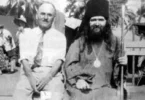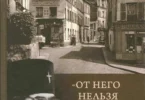At the beginning of the 18th century, the Polish-Lithuanian Commonwealth was the greatest power of Eastern-Central Europe. Its boundaries stretched from Lithuania in the north to the Black Sea in the south, near Berlin in the west to near Smolensk in the east. Wars with Sweden, Cossack uprisings, and governmental peculiarities had, by this time, greatly weakened Poland. Interference in Russian affairs, as well as liberal (for the times) reforms, aroused the enmity of Russia and Prussia. On the decline, Poland became a target for the acquisition of land, wealth and revenge by Russia, Prussia, and Austria-Hungary. The three Partitions of Poland took place in 1772, 1793, and 1795. In 1772 and 1795, Polish territory was taken and shared by Russia, Prussia, and Austria-Hungary. In 1793, only Russia and Prussia claimed Polish territory. The Third Partition, in 1795, took all that was left to take, and wiped Poland off the map for more than a century. Some adjustments made after the Napoleonic Wars saw Russia receive the “lion’s share” of the former Polish-Lithuanian Commonwealth. Polish uprisings in 1831 and 1863 both brought harsher rule to the Polish lands under Russia, including confiscation of property, deportation, forced military service, the closure of Polish universities, and the Russification of Polish secondary schools. The Poles were not willing subjects of the Russian Empire. [1]http://web.ku.edu/~eceurope/hist557/lect3-4.htm,[2]http://en.wikipedia.org/wiki/Partitions_of_Poland
World War I, which saw Poles fighting against each other in the opposing armies of Russia and Germany/Austria-Hungary (nearly 2 million, with 450,000 killed), and its aftermath, was to change the situation of Poland dramatically, from non-existence to renascence of statehood. The first stirrings came in 1916, when Germany and Austria-Hungary announced plans for a new “Kingdom of Poland.” This was, in the short term, supposed to aid in the creation of a Polish Army to fight for the Central Powers (Germany, Austria-Hungary, and the Ottoman Empire). Poles and Jews were to be deported from the new Kingdom, which would then be settled by German colonists, with Poles serving in an Army under German command. Understandably, these efforts failed, as there were no volunteers forthcoming to serve a German dominated “Polish” Army. This Kingdom of Poland was proclaimed after the Treaty of Brest-Litovsk assured peace on the Eastern Front. However, the defeat of the Central Powers saw a swift demise of the new “Kingdom of Poland,” and it handed over governmental powers to the career Imperial Russian Army officer, Josef Pilsudski, who was soon recognized as provisional “Chief of State.” [3]http://en.wikipedia.org/wiki/History_of_Poland_during_World_War_I
The entrance of the United States in the War, and the Bolshevik takeover in Russia-two disparate events- both played a great part in heightening the prospects of a rebirth of Poland. The Bolsheviks had to leave the War in order to pacify a war weary army and population, and safeguard their “revolution.” The Brest-Litovsk Treaty signed by the Bolsheviks and Germany put all of Poland into the hands of the Central Powers. This, in turn, helped to allow Woodrow Wilson, the U.S. President, to turn the War into a crusade for “democracy.” The defeat of the Central Powers then all but assured a new Polish state. The thirteenth of Wilson’s Fourteen Points for peace stated the resurrection of an independent Poland as one of the primary aims of the War. [4]ibid.
The defeat of the Central Powers in World War I, along with the Bolshevik takeover in Russia, “brought nearly a dozen new states into being, all newly independent from their fallen Russian, Austrian, German, and Turkish masters, and each intent upon realizing its broadest “historic” frontiers.” [5]Lincoln, p. 396 Among the territories lost to Russia were Finland, Lithuania, Latvia, Estonia, and Poland. The great majority of Finns, Lithuanians, Latvians, Estonians and Poles were, undoubtedly, ecstatic to have been freed from the rule of Russia, and to the following possibility of pursuing national aspirations. Probably, none more so than the Poles …
“Like their European brethren, the Poles believed that the borders they shared with Russia marked a vast historical and cultural abyss that divided Europe from Asia … At the Russo – Polish frontier, Poland stood for freedom against slavery, for law against tyranny, and for Western civilization against the barbarism of Asia.” [6]Lincoln, p. 393 The “great national poet of [Polish] freedom, Adam Mickiewicz,” stated succinctly that Poland was “the embodiment of the idea totally opposite to that of Russia.” [7]Lincoln, p. 394
As if these historical antipathies and antagonisms were not enough, the rise of Bolshevism in Russia brought new and added apprehensions and phobia. “Everywhere, in the lands of both victors and vanquished and in the new states scrabbling for freedom, the relief of peace was overshadowed by a common fear, the dread of the Red Terror from the east: Bolshevism.” [8]Read, Anthony The World on Fire NY, 2008 p. 1 A British socialist and intellectual, Beatrice Webb remarked, “Peace! Thrones are everywhere crashing and the men of property everywhere secretly trembling. How soon will the tide of revolution catch up with the tide of victory?” [9]Read, p. 2
The Bolsheviks were determined to conquer Poland, as they saw only one route for the “tide of revolution” to “catch up with the tide of victory.” That “route” was through Poland to Germany, where Red revolt had struck in Berlin, Munich, Hamburg, Kiel, and several other locales. “The path of the world conflagration passes over the corpse of Poland,” proclaimed Mikhail Tukachevsky, Russian nobleman and former Imperial Army officer who became one of the most successful of the commanders of the Red Army in the Russian Civil War. [10]Lincoln, p. 402 The Poles were equally, if not more, resolute. In a plea for aid, Ignace Paderewski, the famed pianist and Polish Prime Minister, in a message to Churchill, stated , “We are determined to hold our own against the barbarian Bolshevist forces,” but, “unassisted, we cannot any longer oppose the enemy.” “Fear,” “dread,” “red terror from the east,” “men secretly trembling,” “world conflagration,” “the corpse of Poland,” “barbarian Bolshevist:” this was not mere hyperbole – the grave shock and absolute horror that the Bolsheviks triggered around the world was very real. [11]Lincoln, p. 404
References
| ↵1 | http://web.ku.edu/~eceurope/hist557/lect3-4.htm, |
|---|---|
| ↵2 | http://en.wikipedia.org/wiki/Partitions_of_Poland |
| ↵3 | http://en.wikipedia.org/wiki/History_of_Poland_during_World_War_I |
| ↵4 | ibid. |
| ↵5 | Lincoln, p. 396 |
| ↵6 | Lincoln, p. 393 |
| ↵7 | Lincoln, p. 394 |
| ↵8 | Read, Anthony The World on Fire NY, 2008 p. 1 |
| ↵9 | Read, p. 2 |
| ↵10 | Lincoln, p. 402 |
| ↵11 | Lincoln, p. 404 |










